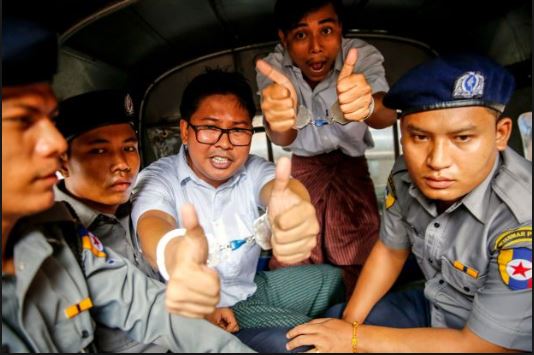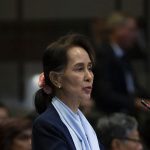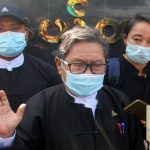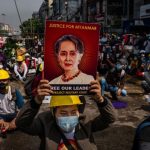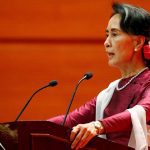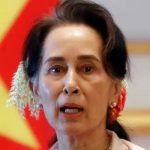After relentless diplomatic pressure and global outrage, fallen democracy icon Aung San Suu Kyi finally decided that a pardon for two Myanmar journalists jailed for reporting on a Rohingya massacre was the only way to resolve an issue that has dogged her government for nearly 18 months.
Observers say the unexpected release of the two Reuters reporters was a political decision timed to save face for the country’s civilian leader, after a vigorous international campaign that saw Amal Clooney join their legal team, Time magazine put the pair on their cover, and journalism awards and honours pile up – including the prestigious Pulitzer Prize.
A presidential pardon freed Wa Lone, 33, and Kyaw Soe Oo, 29, from prison on Tuesday (May 7) to a media frenzy and messages of congratulations from the White House to UN Secretary-General Antonio Guterres.
The pair spent more than 500 days behind bars under colonial-era state secrets convictions after probing the extrajudicial killing of 10 Rohingya Muslims during a military crackdown.
Global attention on the reporters and the damage already done to the country’s reputation were “potentially costly” to the government, said independent analyst Richard Horsey.
Nobel Laureate Suu Kyi – already seen as a pariah by many for perceived complicity in the Rohingya’s plight – provoked outcry when she refused to intervene, insisting the “rule of law” must be followed.
The abrupt decision to release the pair this week was made because Myanmar’s leaders had “taken into consideration the long-term interest of (the) country”, said government spokesman Zaw Htay.
Despite the release, observers warn against reading too much into prospects for greater press freedom in the beleaguered democracy, which began a troubled transition from military rule in 2010.
“The pardon will not change the conditions that journalists (in Myanmar) are facing,” said activist Cheery Zahau.

